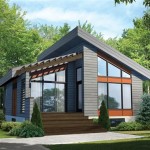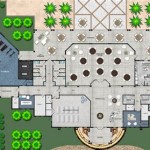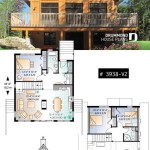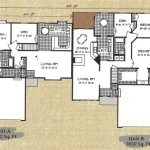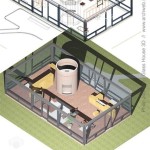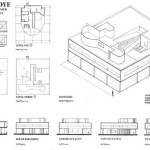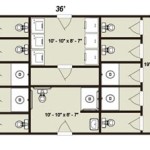How To Design Your Own House Floor Plan
Designing a house floor plan is a significant undertaking, but a rewarding one. A well-designed plan is the foundation of a functional and comfortable home. This guide provides a step-by-step approach to help individuals create a personalized floor plan.
1. Define Needs and Wants
The first step is to identify the requirements of the future home. This involves considering the lifestyle, family size, and future needs of the occupants. Listing specific needs and wants will guide the design process and prevent costly revisions later.
Key Considerations:
- Number of bedrooms and bathrooms
- Need for dedicated office space or study areas
- Desired size and layout of the kitchen and dining area
- Provision for storage space
- Accessibility requirements
- Outdoor living spaces like patios or balconies
- Garage or carport requirements
2. Determine Site Conditions and Constraints
Understanding the site is crucial for effective planning. The site’s shape, size, slope, and orientation will influence the layout and design of the house. Local building codes and zoning regulations should also be researched and incorporated into the design.
Key Considerations:
- Site dimensions and shape
- Topography and drainage
- Sun exposure and prevailing winds
- Setback requirements and easements
- Utility connections and locations
3. Establish a Budget
Setting a realistic budget early in the design process is essential. Construction costs, material prices, and professional fees should all be factored in. A budget will help guide design choices and prevent overspending.
Key Considerations:
- Material costs (lumber, concrete, roofing, etc.)
- Labor costs for contractors and subcontractors
- Permitting and inspection fees
- Contingency funds for unexpected expenses
4. Sketch Initial Floor Plan Concepts
Once the preliminary information is gathered, initial floor plan sketches can be created. These don't need to be perfect; they serve as a starting point for visualizing the layout and flow of the house. Bubble diagrams can be helpful in this stage to represent the relationship between different spaces.
Key Considerations:
- Room placement and adjacencies
- Traffic flow and circulation patterns
- Window and door placement for natural light and ventilation
- Furniture placement considerations
5. Refine the Floor Plan
After sketching initial concepts, the floor plan needs to be refined. This stage involves adjusting room sizes, optimizing traffic flow, and incorporating specific design elements. Consider the relationship between indoor and outdoor spaces to maximize natural light and views.
Key Considerations:
- Fine-tuning room dimensions and layouts
- Optimizing circulation paths and minimizing wasted space
- Incorporating storage solutions and built-in features
- Integrating sustainable design principles
6. Utilize Design Software (Optional)
While hand-drawn sketches are a valid starting point, design software can be invaluable for creating accurate and detailed floor plans. Many software options are available, ranging from free online tools to professional-grade programs. These tools allow for easy modifications, 3D visualizations, and accurate measurements.
Key Considerations:
- Ease of use and learning curve
- Features and functionality (2D/3D, material libraries, etc.)
- Cost and availability
7. Consult with Professionals
While designing a floor plan independently is feasible, consulting with professionals is highly recommended, especially for complex projects. Architects, structural engineers, and contractors can provide valuable expertise and ensure that the design is structurally sound, complies with building codes, and is cost-effective.
Key Considerations:
- Structural integrity and safety
- Compliance with building codes and regulations
- Cost estimation and budget management
- Accessibility and universal design principles
8. Finalize and Review the Floor Plan
Once the design is finalized, it's essential to thoroughly review it before proceeding to the construction phase. Check for any errors or omissions and ensure that the final plan accurately reflects the desired outcome. Multiple revisions and adjustments may be necessary throughout the process.
Key Considerations:
- Final check for errors and omissions
- Verification of measurements and dimensions
- Confirmation of compliance with building codes and regulations
- Final review with relevant professionals

Design Your Own Home House Designing Homes

House Plans How To Design Your Home Plan

Designing My Own House

House Plans How To Design Your Home Plan

Floor Plans Learn How To Design And Plan

Make Your Own Blueprint How To Draw Floor Plans

Playing Architect With Floorplanner Making 2d House Plans Young Love

Make Your Own Blueprint How To Draw Floor Plans Drawing House Sketch Plan

Create Floor Plan

Creating Your Dream Custom Floor Plan Citadel Signature Homes

